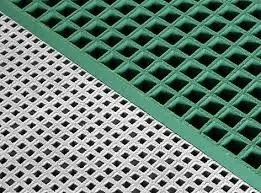
-
 Afrikaans
Afrikaans -
 Albanian
Albanian -
 Amharic
Amharic -
 Arabic
Arabic -
 Armenian
Armenian -
 Azerbaijani
Azerbaijani -
 Basque
Basque -
 Belarusian
Belarusian -
 Bengali
Bengali -
 Bosnian
Bosnian -
 Bulgarian
Bulgarian -
 Catalan
Catalan -
 Cebuano
Cebuano -
 China
China -
 China (Taiwan)
China (Taiwan) -
 Corsican
Corsican -
 Croatian
Croatian -
 Czech
Czech -
 Danish
Danish -
 Dutch
Dutch -
 English
English -
 Esperanto
Esperanto -
 Estonian
Estonian -
 Finnish
Finnish -
 French
French -
 Frisian
Frisian -
 Galician
Galician -
 Georgian
Georgian -
 German
German -
 Greek
Greek -
 Gujarati
Gujarati -
 Haitian Creole
Haitian Creole -
 hausa
hausa -
 hawaiian
hawaiian -
 Hebrew
Hebrew -
 Hindi
Hindi -
 Miao
Miao -
 Hungarian
Hungarian -
 Icelandic
Icelandic -
 igbo
igbo -
 Indonesian
Indonesian -
 irish
irish -
 Italian
Italian -
 Japanese
Japanese -
 Javanese
Javanese -
 Kannada
Kannada -
 kazakh
kazakh -
 Khmer
Khmer -
 Rwandese
Rwandese -
 Korean
Korean -
 Kurdish
Kurdish -
 Kyrgyz
Kyrgyz -
 Lao
Lao -
 Latin
Latin -
 Latvian
Latvian -
 Lithuanian
Lithuanian -
 Luxembourgish
Luxembourgish -
 Macedonian
Macedonian -
 Malgashi
Malgashi -
 Malay
Malay -
 Malayalam
Malayalam -
 Maltese
Maltese -
 Maori
Maori -
 Marathi
Marathi -
 Mongolian
Mongolian -
 Myanmar
Myanmar -
 Nepali
Nepali -
 Norwegian
Norwegian -
 Norwegian
Norwegian -
 Occitan
Occitan -
 Pashto
Pashto -
 Persian
Persian -
 Polish
Polish -
 Portuguese
Portuguese -
 Punjabi
Punjabi -
 Romanian
Romanian -
 Russian
Russian -
 Samoan
Samoan -
 Scottish Gaelic
Scottish Gaelic -
 Serbian
Serbian -
 Sesotho
Sesotho -
 Shona
Shona -
 Sindhi
Sindhi -
 Sinhala
Sinhala -
 Slovak
Slovak -
 Slovenian
Slovenian -
 Somali
Somali -
 Spanish
Spanish -
 Sundanese
Sundanese -
 Swahili
Swahili -
 Swedish
Swedish -
 Tagalog
Tagalog -
 Tajik
Tajik -
 Tamil
Tamil -
 Tatar
Tatar -
 Telugu
Telugu -
 Thai
Thai -
 Turkish
Turkish -
 Turkmen
Turkmen -
 Ukrainian
Ukrainian -
 Urdu
Urdu -
 Uighur
Uighur -
 Uzbek
Uzbek -
 Vietnamese
Vietnamese -
 Welsh
Welsh -
 Bantu
Bantu -
 Yiddish
Yiddish -
 Yoruba
Yoruba -
 Zulu
Zulu
Exploring the Advantages of Fiber Pipe in Modern Infrastructure Solutions
Fiber Pipes Revolutionizing Modern Infrastructure
In recent years, the construction and telecommunications industries have witnessed a significant transformation thanks to the advent of fiber pipes. These innovative conduits, made primarily from high-strength synthetic fibers, are designed to carry a wide range of materials, from telecommunications data to water and even electrical cables. The use of fiber pipes is revolutionizing how infrastructure is built and maintained, offering numerous advantages over traditional materials like metal and plastic.
One of the key benefits of fiber pipes is their lightweight nature. Weighing significantly less than their metal counterparts, fiber pipes can be easily transported and installed, reducing labor costs and installation time. This attribute is particularly advantageous in urban areas where space and accessibility are concerns. Moreover, their flexibility allows for easier navigation around existing infrastructure, minimizing disruption during installation and reducing the need for extensive excavation.
Durability is another hallmark of fiber pipes. Resistant to corrosion, rust, and chemical damage, these pipes can withstand harsh environmental conditions, ensuring a longer service life. This is especially critical in industries such as wastewater management, where traditional materials may degrade rapidly. The longevity of fiber pipes not only ensures reliable performance but also lowers maintenance costs, creating economic advantages for municipalities and private companies alike.
fiber pipe

Additionally, fiber pipes demonstrate superior performance in terms of data transmission. With the rise of smart cities and the Internet of Things (IoT), the demand for efficient and high-speed data networks is skyrocketing. Fiber optic technology integrated within these pipes enables the rapid transfer of information, supporting the infrastructure necessary for modern connectivity. This is pivotal in a world increasingly reliant on digital communication.
Environmental considerations have also become a significant focus for industries worldwide. Fiber pipes typically require less energy to produce compared to traditional materials, and their lightweight properties lead to fuel savings during transportation. Furthermore, many fiber pipes are manufactured from recyclable materials, contributing to a more sustainable approach to infrastructure.
In conclusion, fiber pipes represent a significant advancement in modern infrastructure solutions. Their lightweight, durable, and environmentally friendly properties make them an excellent choice for various applications. As we continue to face challenges associated with aging infrastructure and increased demand for connectivity, the adoption of fiber pipes will undoubtedly play a critical role in shaping the future of urban development and resource management. The transition to this innovative approach is not just a trend but a necessary evolution in our quest for efficiency and sustainability.
Latest news
-
Exploring the Benefits of Top Hammer Drifter Rods for Enhanced Drilling PerformanceNewsJun.10,2025
-
High-Precision Fiberglass Winding Machine for GRP/FRP Pipe Production – Reliable & Efficient SolutionsNewsJun.10,2025
-
FRP Pipes & Fittings for Shipbuilding - Corrosion-Resistant & LightweightNewsJun.09,2025
-
Premium FRP Flooring Solutions Durable & Slip-ResistantNewsJun.09,2025
-
Premium Fiberglass Rectangular Tanks Durable & Lightweight SolutionNewsJun.09,2025
-
Tapered Drill String Design Guide Durable Performance & UsesNewsJun.09,2025









